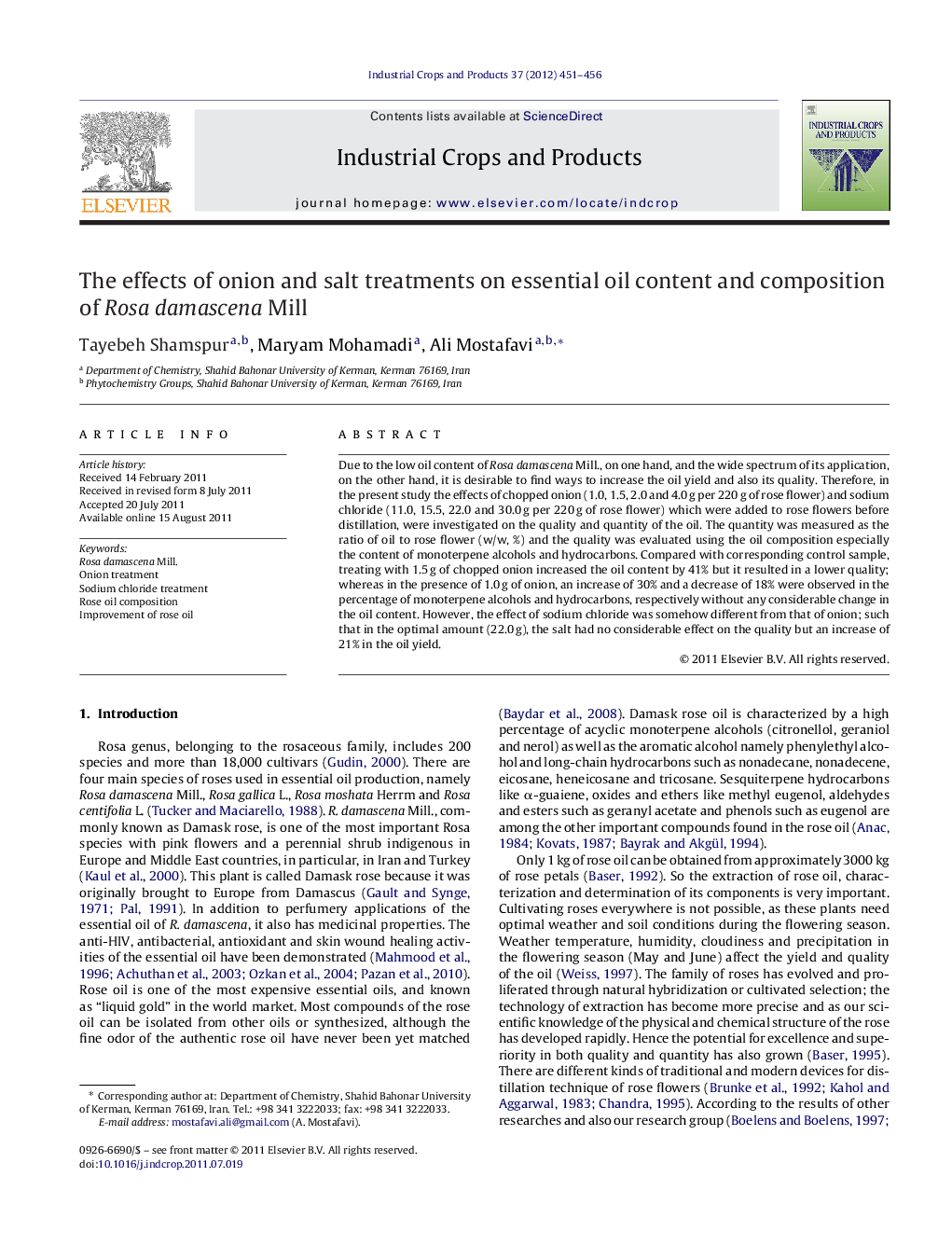| Article ID | Journal | Published Year | Pages | File Type |
|---|---|---|---|---|
| 4514255 | Industrial Crops and Products | 2012 | 6 Pages |
Due to the low oil content of Rosa damascena Mill., on one hand, and the wide spectrum of its application, on the other hand, it is desirable to find ways to increase the oil yield and also its quality. Therefore, in the present study the effects of chopped onion (1.0, 1.5, 2.0 and 4.0 g per 220 g of rose flower) and sodium chloride (11.0, 15.5, 22.0 and 30.0 g per 220 g of rose flower) which were added to rose flowers before distillation, were investigated on the quality and quantity of the oil. The quantity was measured as the ratio of oil to rose flower (w/w, %) and the quality was evaluated using the oil composition especially the content of monoterpene alcohols and hydrocarbons. Compared with corresponding control sample, treating with 1.5 g of chopped onion increased the oil content by 41% but it resulted in a lower quality; whereas in the presence of 1.0 g of onion, an increase of 30% and a decrease of 18% were observed in the percentage of monoterpene alcohols and hydrocarbons, respectively without any considerable change in the oil content. However, the effect of sodium chloride was somehow different from that of onion; such that in the optimal amount (22.0 g), the salt had no considerable effect on the quality but an increase of 21% in the oil yield.
► At first, we evaluate the effect of pluck time on the oil content of Rosa damascena Mill. ► The highest oil content is found in flowers plucked at 10:00 a.m. ► Then onion and sodium chloride treatments are investigated. ► 1.0 g and 1.5 g of onion per 220 g flower shows the best quantity and quality respectively. ► Treatment with 22.0 g of the salt per 220 g flower results in the best quantity and quality.
